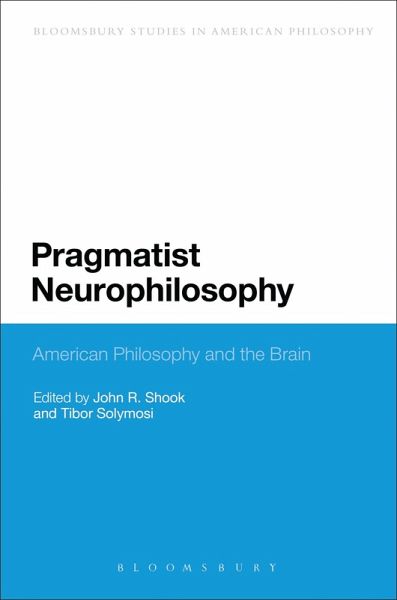
Pragmatist Neurophilosophy: American Philosophy and the Brain (eBook, ePUB)
Versandkostenfrei!
Sofort per Download lieferbar
31,95 €
inkl. MwSt.
Weitere Ausgaben:

PAYBACK Punkte
16 °P sammeln!
Pragmatist Neurophilosophy:American Philosophy and the Brain explains why the broad tradition of pragmatism is needed now more than ever. Bringing pragmatist philosophers together with cognitive psychologists and neuroscientists, this volume explores topics of urgent interest across neuroscience and philosophy from the perspective of pragmatism. Discussing how Charles Peirce, William James, John Dewey, and George Mead benefited from their laboratory-knowledge, contributors treat America's first-generation pragmatists as America's first cognitive scientists. They explain why scientists today sh...
Pragmatist Neurophilosophy:American Philosophy and the Brain explains why the broad tradition of pragmatism is needed now more than ever. Bringing pragmatist philosophers together with cognitive psychologists and neuroscientists, this volume explores topics of urgent interest across neuroscience and philosophy from the perspective of pragmatism. Discussing how Charles Peirce, William James, John Dewey, and George Mead benefited from their laboratory-knowledge, contributors treat America's first-generation pragmatists as America's first cognitive scientists. They explain why scientists today should participate in pragmatic judgments, just as the classical pragmatists did, and how current scientists can benefit from their earlier philosophical explorations across the same territory. Looking at recent neuroscientific discoveries in relation to classical pragmatists, they explore emerging pragmatic views supported directly from the behavioral and brain sciences and describe how "neuropragmatism" engages larger cultural questions by adequately dealing with meaningful values and ethical ideals. Pragmatist Neurophilosophy is an important contribution to scholars of both pragmatism and neuroscience and a timely reminder that America's first generation of pragmatists did not stumble onto its principles, but designed them in light of biology's new discoveries.













